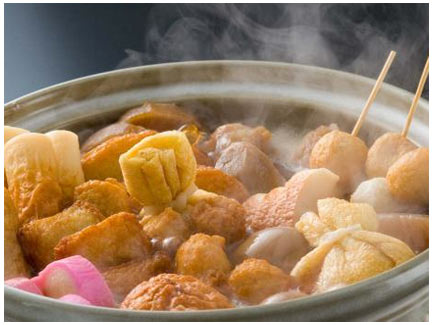It’s funny the way the names of food influences our perception of them. I am big fan of tofu, and enjoy many Japanese dishes that are tofu-based, but if you ask me if I’d like some “chilled bean curd” (which is what it is), I might be less enthused about it. It’s winter now, a great time to eat the Japanese stew called oden (pronounced oh-DEN, not like the Norse god), and one of the ingredients in this dish is chikuwa, accurately but unappetizingly described as “bamboo-shaped fish paste cake.” The curly thing in your bowl of ramen — called a naruto by the way, in case you didn’t know — is made of kamaboko, known in English as “pressed steamed fish cake,” which doesn’t sound nearly as good. Being an island nation, the Japanese eat several kinds of sea-harvested plants described with the unfortunate name of “seaweed,” although nori and wakame and konbu are all delicious, and undeserving of the derogatory name “weed.” (It’s even worse for French people, since seaweed is called algue, e.g. algae.) Bottom line, if you want to enjoy Japanese food, try to learn the food names in Japanese. (By the way, one of the most awesome flavors of potato chips in Japan is nori-shio or roasted seaweed and salt, which we’re stocking on J-List now!)

Some ingredients of oden stew sound better in Japanese than English.















